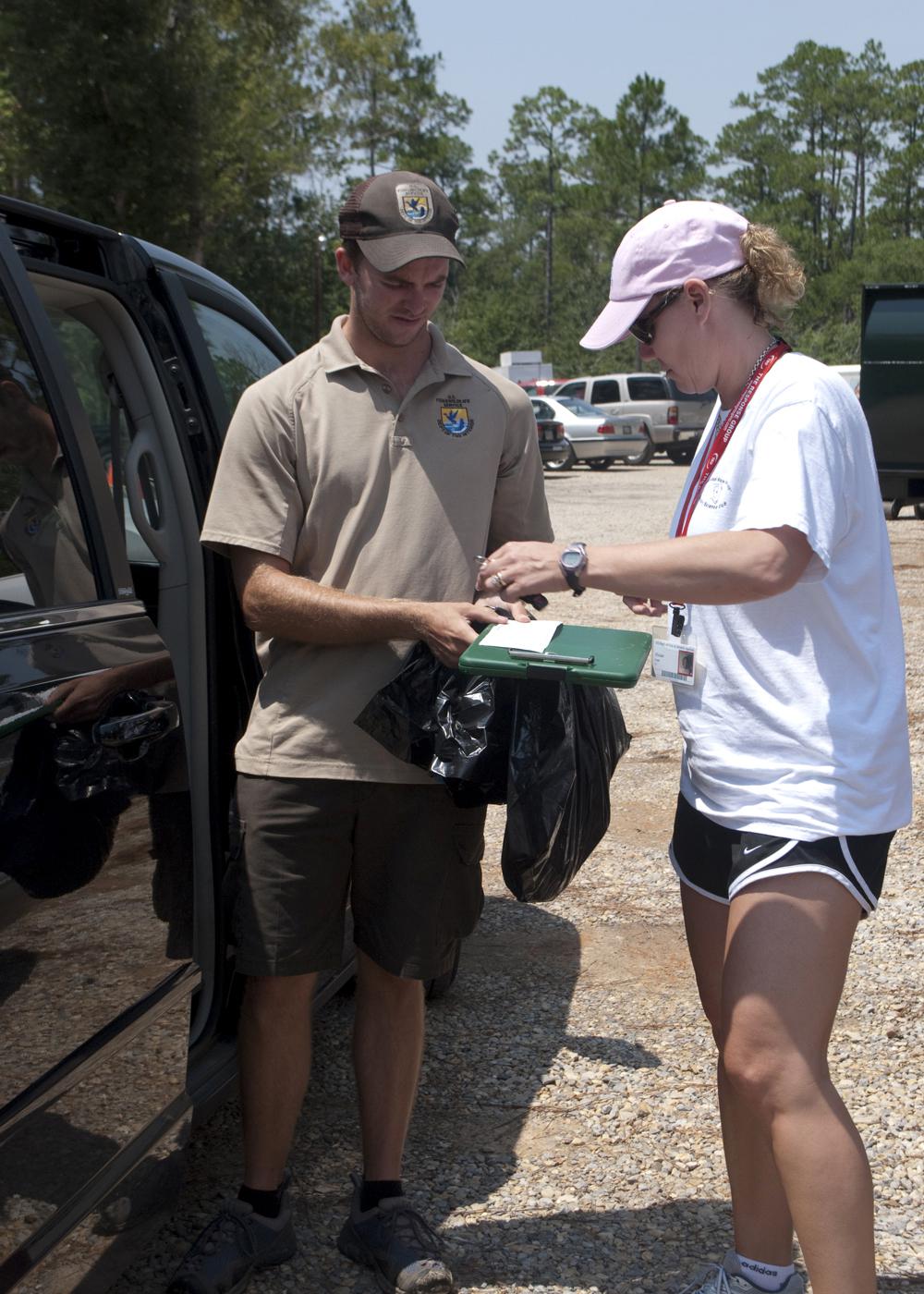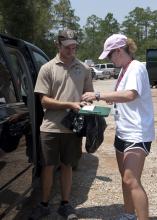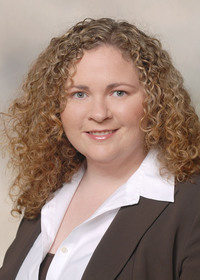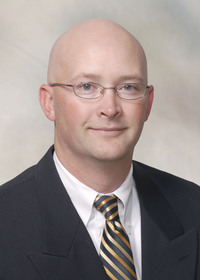Information Possibly Outdated
The information presented on this page was originally released on August 19, 2010. It may not be outdated, but please search our site for more current information. If you plan to quote or reference this information in a publication, please check with the Extension specialist or author before proceeding.
MSU assists wildlife on Mississippi beaches
By Alicia Barnes
Southern Rural Development Center
GULFPORT – Forty two Mississippi State University employees have trained and half have reported to the Mississippi Gulf Coast to transport birds and turtles impacted by the Deepwater Horizon oil spill.
In May, Elmo Collum, an Extension associate who coordinates disaster response, received a call from the Mississippi Animal Response Team requesting assistance from MSU’s Extension Service and the Mississippi Agricultural and Forestry Experiment Station.
“We were tasked with the responsibility of transporting oiled or injured wildlife from the beaches on the coast to the Wildlife Rehabilitation Center or to the Marine Institute,” Collum said.
To prepare for this duty, Mississippi State offered Extension and MAFES employees the opportunity to volunteer for training and service. These employees received Incident Command System 100-200-700 trainings, Hazmat Awareness training, and additional oil spill and animal handling training to ensure the safety of both the responders and the animals.
As an ICS team leader, Starkville resident Vivian Cade regularly responds to disasters across the state. She volunteered for the oil spill response team to encourage others to serve when able.
Cade is an Extension associate for the Department of Food Science, Nutrition and Health Promotion, and she spent four, 12-hour days operating a “bird taxi” in Jackson and east Harrison counties.
After attending daily 6 a.m. briefings in Moss Point, she waited to receive calls from Wildlife and Fisheries teams as they collected birds in east Biloxi, Ocean Springs, Gautier and Pascagoula. Another, separate team transported birds recovered from west Biloxi to the Louisiana state line.
Though it was different from her typical responsibilities of coordinating the educational program Body Walk, Cade saw volunteering for the animal response team as part of her duties as an Extension associate.
“Being an Extension employee is about working with people and aiding them in day-to-day activities. Volunteering for the oil spill response is just another way to help people,” she said.
During her time on the coast, Cade transported 12 birds, recovered mostly from islands just off the beaches. When the boats docked, she signed for the animals and delivered them to workers at the rehabilitation centers.
As a native Mississippian, she appreciated being able to help when needed.
“Serving the state in times of disaster is important because this is where I was born and raised, and I am proud to be from Mississippi,” she said. “When one of us is in need, it is important that we all come together to make things better.”
With an Extension office in every county in the state, MSU is uniquely suited to respond to this type of crisis, Collum explained.
“We have local employees in every county who know the area and the people who are affected by a disaster,” he said. “All disasters are local to someone, and the university and Extension have the people and resources available to respond to disasters.”
The MSU animal response team efforts are scheduled to continue through the end of August, though the team remains ready to respond for future requests as the coast continues to recover.
“The mission and goal of any land-grant university is to assist and make the life of the citizens better. MSUES and MAFES are doing this on the Coast so the citizens there can resume a normal life,” Collum said. “We are also trying to get the Coast area back to normal so its economy can recover.”










